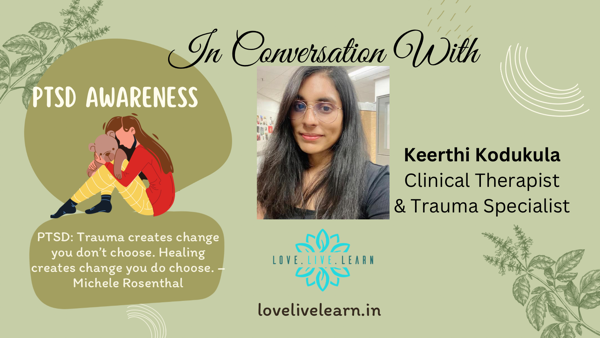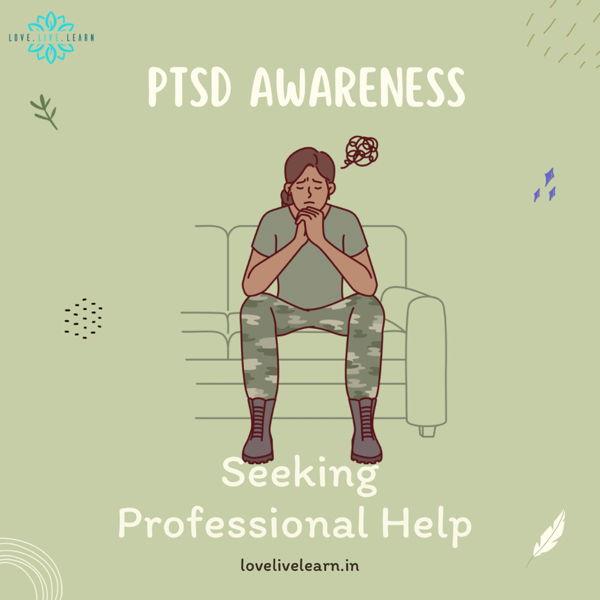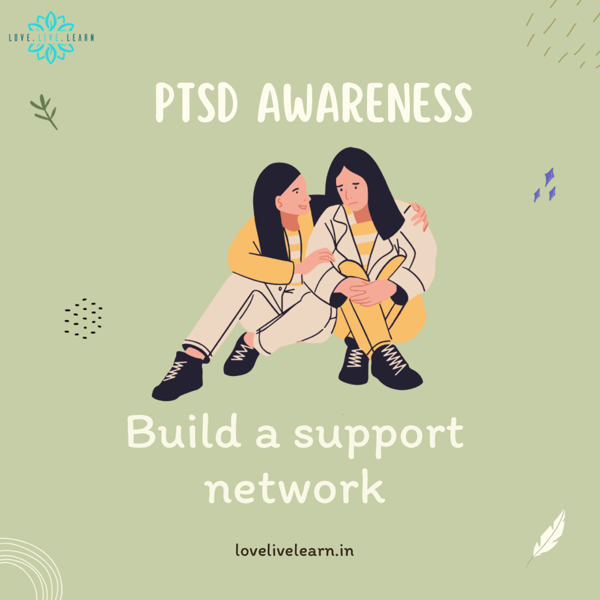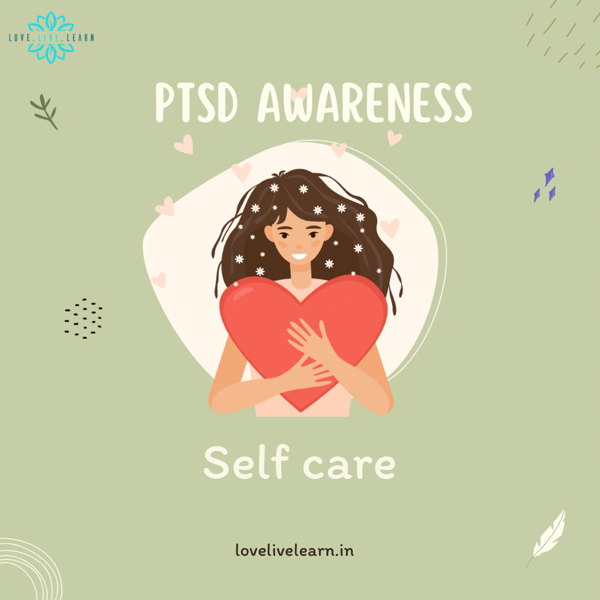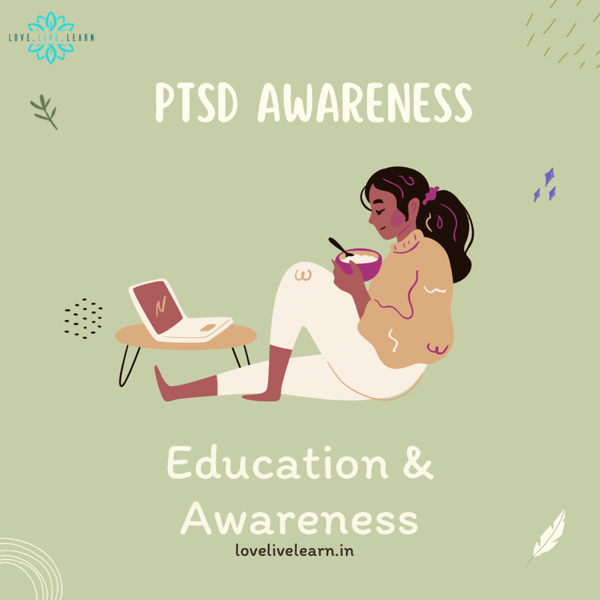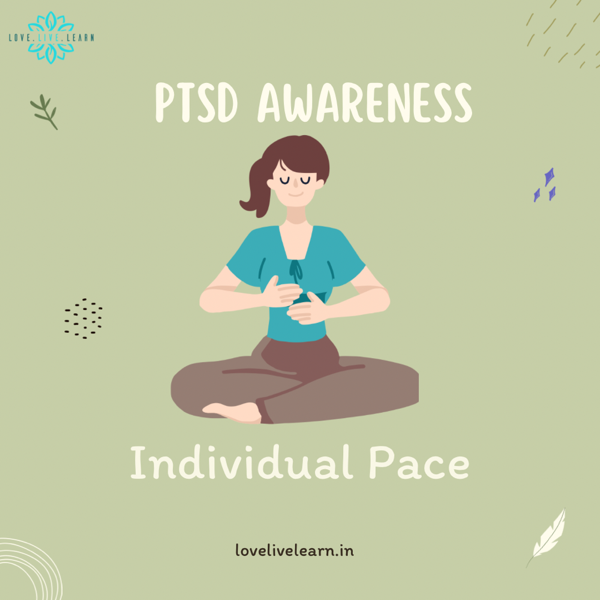#AskAnExpert — PTSD Awareness - Part 2 - In conversation with our trauma specialist @keerthi2706
Remember, healing will take time and it's important to be gentle with yourself as you work through the effects of PTSD. If you haven't already, please reach out to a mental health professional who can provide personalized guidance and support. PTSD is a stress response to a traumatic event. If you or anyone you know requires support or guidance, please feel free to contact us at lovelivelearn in link is in description. Our team consists of certified and experienced therapists who also specialize in trauma healing
You. Hi, Kirti. So my first question is that considering to find a therapist who is experienced in treating PTSD is so critical, it is so important. We all know that certified and experienced therapist can guide the client through evidencebased therapies such as cognitive behavior therapy or EMDR. Can you tell us a little more about what to look for in such a therapist? How do I know that I'm actually reaching out to the right person who can help me heal from my PTSD symptoms?

Keerthi Kodukula
@keerthi2706 · 4:48
Hello. Hi, thank you so much for the question and tagging me in to respond to this question. So the first thing you want to look at in treatment of trauma is you want to be able to find somebody who can help you with the past, who is skilled at talking about or helping you talk about the trauma that has happened with you
I have never met a therapist who can be so compassionate, who can be so listening and can be so experienced and so systematic in actually helping you deal with your trauma and be aware of what's actually happening to you. And we have got amazing reviews on Keith's approach and how quickly actually and how systematically she can help people move past their trauma and begin their healing process. So if you are still looking if any of you are looking for trauma healing, do consider Kirdi for sure
We all understand that support system is important, but what about those who do not have the support system? Where can they start building this support system for themselves to begin their healing from PTSD? Look forward to hear from you on the second question as well

Keerthi Kodukula
@keerthi2706 · 4:57
For individuals who have experienced chronic trauma, abuse, domestic violence, if you've been in the army, any form of post traumatic stress disorder, and if you're carrying the symptoms, support groups tend to help. Now, what do we look for in the support system? You want to look for how you can actually build a strong support system
I can very well imagine when someone, a family member or friends, colleagues, have somebody around, around them who is going through PTSD and extreme symptoms of PTSD, they can themselves feel very anxious, very worn out, very tired, and emotionally drained out at times. So I think it very rightly said that support system is for everybody, and it has to be for even those who are providing support to PTSD clients and patients
You. So here is my third question around self care. We know that selfcare in general is a very essential part for mental wellness and physical wellbeing. But selfcare particularly is an essential component of managing PTSD. We know that individuals with PTSD often experience a range of distressing symptoms, including anxiety, hyper, vigilance, flashbacks, and emotional numbness engaging in regular self care practices. We also are aware that can help individuals cope with these symptoms and improve their overall well being

Keerthi Kodukula
@keerthi2706 · 4:56
Which is why individuals get that support from a trauma informed specialist. Because in a safe space they're able to not just explore the triggers, but also what the trauma is doing to their body. And you break it down symptom by symptom. And the good thing about trauma, most of them, is the symptoms are more physical. So you look at the physical, the individual is taught about the physical symptoms that the trauma is bringing and how they can manage each symptom one after the other
And I think it's only a skilled and experienced and a well equipped therapist who can actually look at each of these small details, every single reaction to the entire healing process that the person may be going through to be able to help them not develop additional disorders as part of their healing process. So it's all very complex. And once again, for that reason, I really encourage everybody to not think that trauma and depression, these are not things that can be just snapped out of
Is there a possibility that people can actually get into frantic mode of getting more and more information and wanting to just know everything about PTSD and begin even self healing? Or trying all types of modalities and trying all types of mechanisms that they can find information on anywhere? And to top it all, we have so much of unsolicited advice available around us. People like to share in all genuine and good intent, with good intent to help, but they may not be the experts. So what's your advice?

Keerthi Kodukula
@keerthi2706 · 4:44
So the client is the one who has more control on understanding what triggers what. But now the therapist is the person who directs the client in that process. The therapist is the person who probably challenges the client or puts the client or poses provides the client with a toolbox of coping mechanisms. And the client can open that toolbox, pick up a coping mechanism, and say, hey, this is more appropriate for me to use in this instance, so I'm going to use this
But this is so critical where you state that the relationship of the therapist and the client is not going to be there forever. And so the therapist is not only helping the client actually heal through the trauma to get past the entire situation, be able to control himself or herself better, but is also equipping this client to become more independent and be able to manage situations on his or her own in future. And that is such a powerful thing to do, I believe
Swell Team
@Swell · 0:15
My question number five from you is you spoke about individual pace, and I was reading earlier today as well that PTSD does have a very individualistic approach of healing, how people will heal. The pace of healing in PTSD can vary greatly from person to person. It is a complex mental health condition, and it can result from experiencing and witnessing a traumatic event. And the healing process often involves a combination of therapies and support and so much more

Keerthi Kodukula
@keerthi2706 · 5:00
It can be done for anybody who realized, who don't realize that they are wounded. Now, because of how we live in our everyday, we're just constantly distracted. We put the uncomfortable aspects of the trauma away. We are filled by other things which don't let us actually reconnect with ourselves. Right? So I think a constant question an individual has to be asking themselves is what does that feel like for them and what it is all about?
And this means that you will have to actually, literally remove the different layers of influence, of trauma, of pain, of hurt, of not being acknowledged, of not being praised or loved or cared for. You have to keep removing all those different layers and then be willing to meet the true you that is hidden under all those layers and then having that faith that healing is possible, knowing that it is going to get through. I think this was really, really powerful for me

